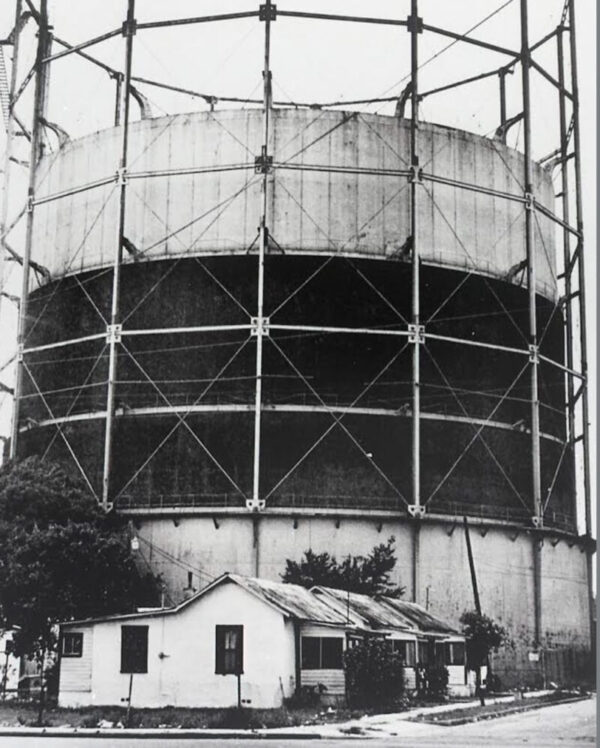By Collin Gustafson
Transcript:
Collin Gustafson:
This hurricane season Floridians dodged a bullet. Hurricane Irma screamed through the Caribbean islands in early September, strengthening to a category 5 for much of its life. The storm brought unprecedented hurricane force winds and a dangerous amount of water to the island nations. By the time Irma made landfall on the southwest coast of Florida it lost much of its power, dipping back down to a category 3 hurricane. A direct hit from a category 5 would have been devastating, but a category 3 storm still brings a level of destruction that gives insight into what a category 5 storm would entail.
James Harris:
My name’s James.
Gustafson:
Nice to meet you James. What’s your last name?
Harris:
Harris. H-a-r-r-i-s.
Gustafson:
James Harris sits alone outside of the Enoch Davis Recreation Center in Cromwell Heights, a neighborhood located in south St. Petersburg, Florida. He is waiting for the Federal Emergency Management Agency, of FEMA, workers to return from lunch so he can sign up to receive aid from the government. Harris lost everything in the storm.
Harris:
I was there when it started coming through my closet. I kept hearing something leaking, leaking and I looked out in the hall and it was coming down the hall from the bathroom, down the hall.
Gustafson:
Shingles on Harris’s roof were blown off by the hurricane force winds, exposing the unprotected roof to the full power of the storm. Multiple leaks began to form in the ceiling of the home. At first the bathroom was the only place where the water began entering, but then Harris’s own closet was swept up in the cascade of water.
Harris:
When the hurricane came through I didn’t go to no shelter or nothing. I’m in between two houses so I figured I wouldn’t get hit so hard from the winds. When I sat there I could see the shingles and paper coming off the roof with the house shaking. Next thing I know water is coming through hard from the ceiling. All my clothes got soaking wet. My furniture got soaking wet with mildew.
Gustafson:
Insulation from between the ceiling and roof rained down with the trickle of water on Harris and all of his belongings. The water ran straight down on top of all of his clothes in his closet and onto his carpet floor. His television, furniture and bed all become soaking wet as the number of leaks in the ceiling grew larger. Power to the house also went out during the storm and did not return for five days. Harris lost not only his possessions but also all of his nonperishable food. This was just a category 3 storm.
Harris is one of those people that can not prepare during a hurricane. He is on a fixed income with only his disability checks and food stamps to pay rent and keep himself fed. The St. Petersburg native had hip replacement surgery earlier this year so his mobility is drastically impaired. His home is just south of i275 in Jordan Park, a mile and away from the nearest hurricane shelter. The house is a multi-family home where Harris shares the kitchen, common area and bathroom with the others living in the house. The owner of the home has not yet fixed the problems caused by the storm.
Harris:
They put a blue tarp over the house to stop the leaks. They are trying to find the cheapest person to come in and redo the roof. They came inside and put in five gallon buckets. So they come in every day and dump the buckets because it’s all in the roof.
Gustafson:
Rooms in Harris’s home are filled by the stench of mildew. Even after all of the furniture was thrown away and carpet ripped up there is still damage in the walls and roof that have to be dealt with. Harris sleeps on an air mattress on the floor in the same room that is filled with water damage.
Harris:
Thank God for that. Looking at some of the stuff that happened in Puerto Rico and all this stuff with some of the houses in St. Petersburg.
Gustafson:
The FEMA sign up hall is just two rooms in the recreation center. A table outside the rooms has a list of names that will be called for sign up. Harris is twenty-sixth on the list. The first room for people seeking aid is a waiting room where over thirty people wait their turn to be called into the second room. Within the second room four employees from FEMA help people sign up for aid on laptops. It is loud and chaotic. Most of the group have a hard time navigating a computer on their own.
This is the process Harris and hundreds of others have gone through at the Enoch Davis Center to get financial assistance following Hurricane Irma. Some, like Harris, have lost everything while others have lost just the food in their refrigerators. Either way it becomes clear that if Irma was any larger twelve laptops in a room would not be enough. Waiting days or weeks to get assistance is too long when disability checks only come in once a month. This system will not be enough for a category 5 direct hit.
Collin Gustafson, University of South Florida St. Petersburg Neighborhood News Bureau
(Music: “Summer Spliffs” by Broke For Free)



